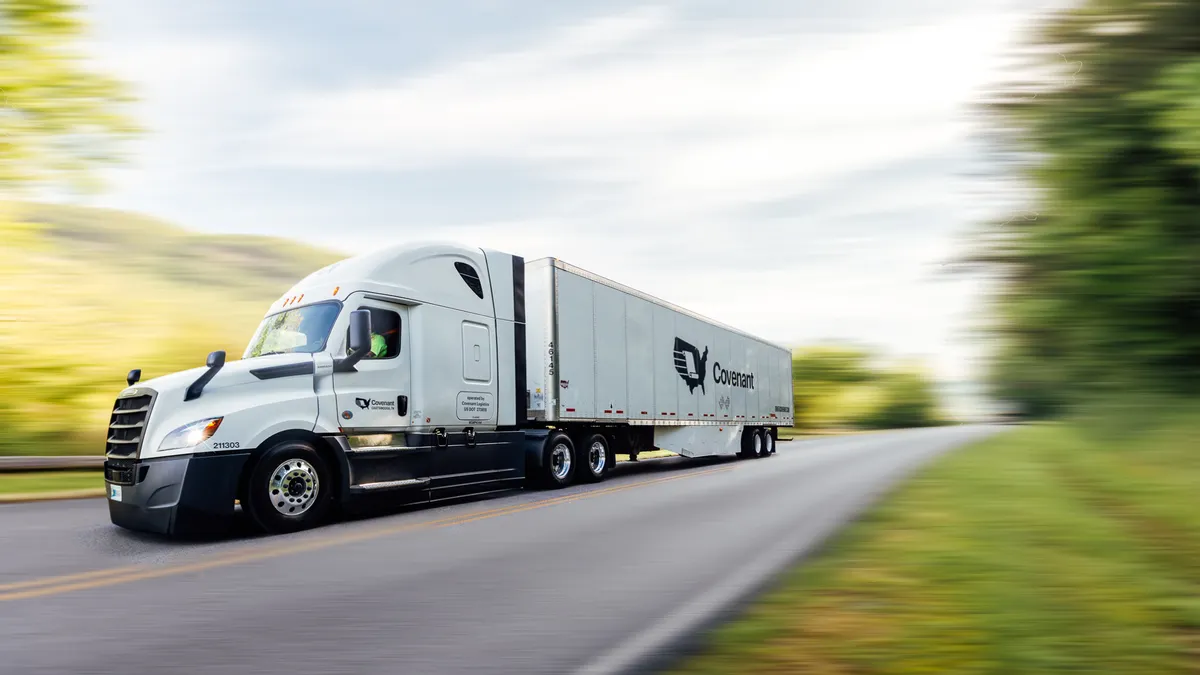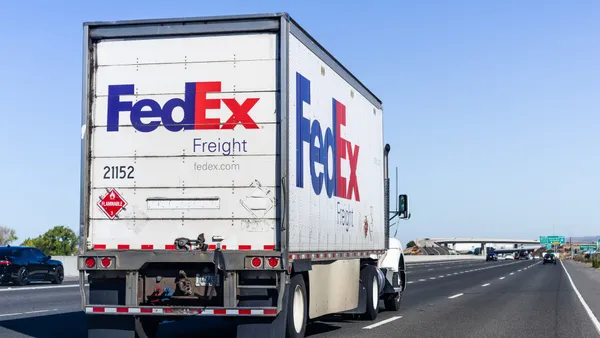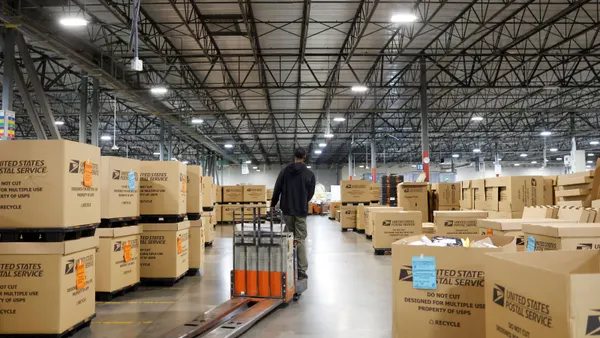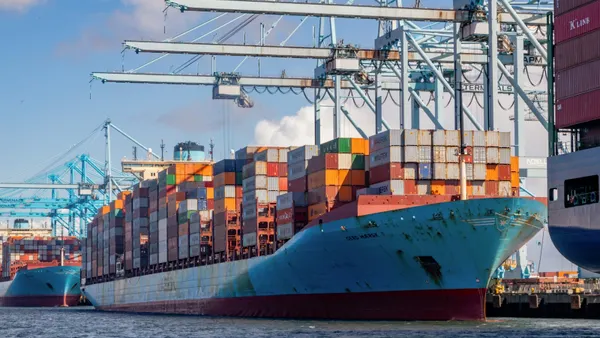Dive Brief:
- A lack of truck pricing information from OEMs is preventing carriers from moving ahead with orders, Covenant Logistics Group executives said during an Oct. 23 earnings call.
- “First off, nobody's pricing — most years, most of the large fleets already have pricing by this point,” CFO James “Tripp” Grant said, but that intel has been delayed due to questions around tariffs.
- This year, that’s meant a lull in OEMs’ order boards in the fourth quarter going into next year on truck and trailer equipment, he said. And that dropoff in new orders, with CEO David Parker even suggesting "nobody is going to buy a Class 8 truck," could spur activity in the used truck market.
Dive Insight:
Covenant Logistics’ equipment — whether used or new — sits unproductive as the carrier waits to learn more about the developing truck tariffs, Parker said.
A 25% tariff on heavy-duty and medium-duty trucks will start Nov. 1 for imports and associated parts, according an executive order signed by President Donald Trump.
Grant said several pending questions remain on how tariffs will impact trucking. “Is that on the whole truck? Is that on parts of the truck [and] which vendors?” he asked. “There's a lot that's been up in the air. Hopefully, by next week, we'll know more,” the executive said on Oct. 23.
In response, Covenant Logistics frontloaded on almost all of its equipment to avoid some tariffs, Parker said.
The transport and logistics company has financed a number of trucks but has been stuck in the acquisition process due to the lack of information.
“I think we're in the position to kind of sit on it for a little bit longer and take advantage of a market swing,” Parker said.
This is a trend Wells Fargo Equipment Finance is noticing with some of its contacts, such as extending cycles to their equipment, waiting to see the environment recover, said Drew Schoessel, managing director of trailer group at the financial services company.
Trucks and trailers are running longer than they typically would, Schoessel told Trucking Dive.
He also added that there’s a lag in 2026 orders as they are “definitely slowing down.” Some big shippers and carriers are replacing some equipment but it’s not at the same level that would be seen in a normal cycle, he said.
Tariff uncertainly has been dampening truck orders for time time. Recently, preliminary ruck order were down 41% in September at 20,500 units, according to FTR’s monthly Class 8 Truck Orders report. The looming tariff change on trucks and parts has created stress on the market and adds to existing pressure of other duties like those on steel.
















